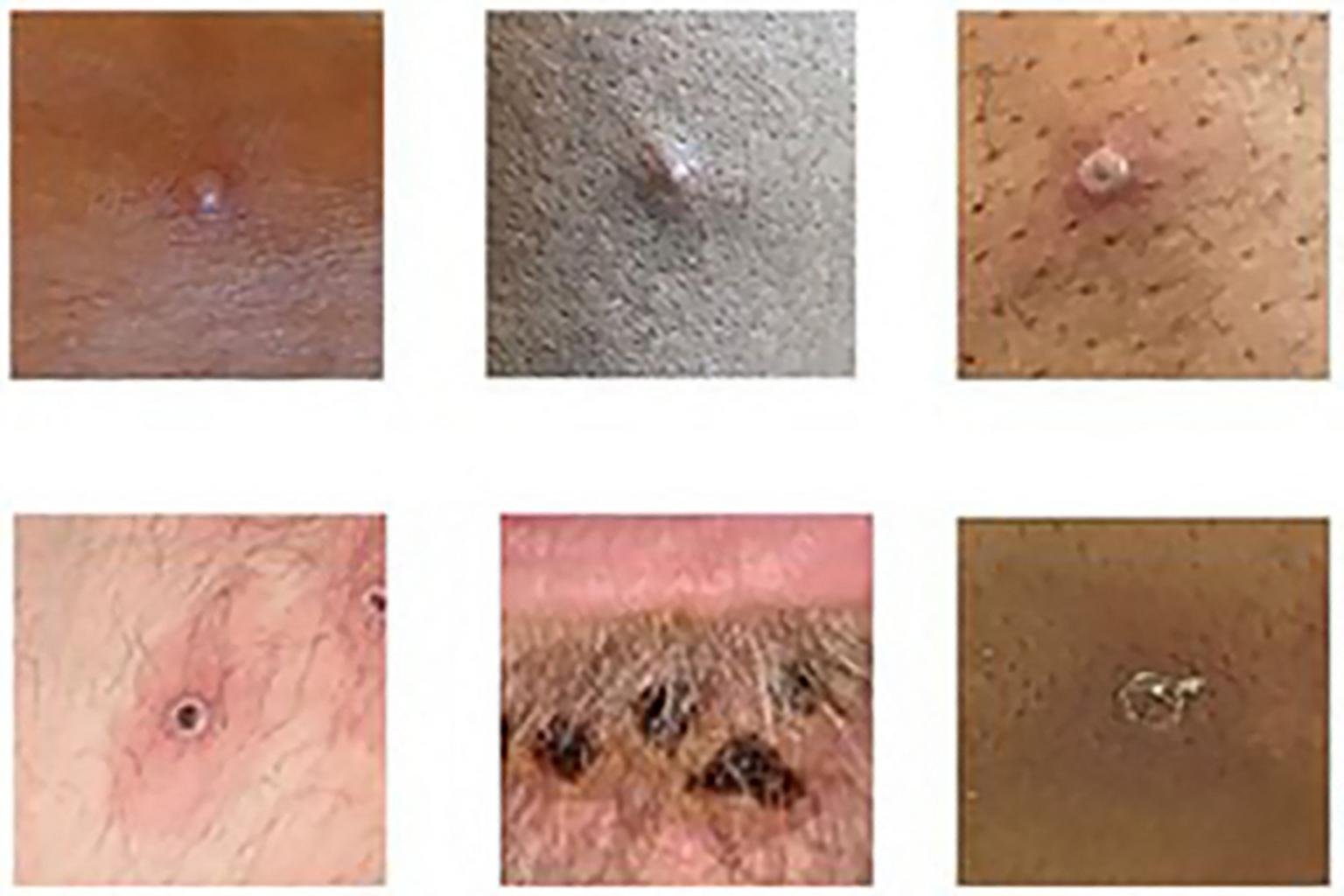Sexual health clinics need resources on monkeypox, study shows
Sign up now: Get ST's newsletters delivered to your inbox

Photos of monkeypox rash lesions. Countries are seeing a rapid rise in monkeypox cases at sexual health clinics.
PHOTO: AFP
LONDON (BLOOMBERG) - Health officials should review how they define monkeypox cases and urgently provide more resources to sexual health clinics, as new infections climb across Europe, researchers have said.
The first study of 54 monkeypox patients in Britain found that their symptoms differed from those seen in previous outbreaks and could potentially be mistaken for other infections, such as herpes and syphilis, increasing the risk of misdiagnosis.
"Misdiagnosis of the infection may prevent the opportunity for appropriate intervention and prevention of onward transmission," said Dr Ruth Byrne of the Chelsea and Westminster Hospital NHS Foundation Trust and one of the authors of the study published in The Lancet Infectious Diseases journal.
"Additional resources are urgently required to support services in managing this condition," she said.
Britain and other countries are seeing a rapid rise in monkeypox cases among individuals at sexual health clinics, with no apparent links to countries where the disease is endemic, the authors said.
In the past two weeks, cases have tripled in Europe, the World Health Organisation reported on Friday (July 1).
The agency said most infections were in men who had sex with other men, but small numbers were now being reported among household members, heterosexual contacts and non-sexual contacts, as well as children.
More than nine out of 10 patients in the British study had monkeypox lesions in the genital region, a distinct feature of the current outbreak and a driver of the virus' explosive spread through sexual networks.
The research also found a lower prevalence of tiredness and fever than in cases from prior outbreaks.
The patients represent 60 per cent of the cases reported in Britain during a period in May, and all identified as men who had sex with men.
At least one in six of the patients in the study wouldn't have met the current definition of a probable monkeypox case, according to Dr Nicolo Girometti, who is also with the Chelsea and Westminster hospital.
"We suggest that case definitions currently detailing symptoms such as acute illness with fever should be reviewed to best adapt to the current findings," he said.
The authors acknowledged some limitations with their study, primarily that it was observational and retrospective and might not be representative of the overall outbreak.
The findings corroborate smaller studies from other countries that the initial presentation of monkeypox can be "subtle and mimic many sexually transmitted infections", said Dr Hugh Adler from the Liverpool School of Tropical Medicine, who was not involved in the study.
He added that current case definitions in Britain were broader now than when the data was collected for this paper.


